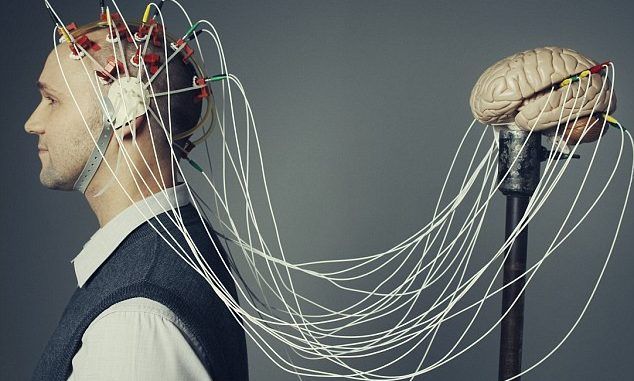
Scientists at Karlsruhe Institute of Technology have discovered a way reading brain activity patterns in humans and converting the activity into text – in the early stages of a ground-breaking mind reading device.
“Brain-to-text” combines knowledge from Neuroscience, Medicine, and Informatics and allows researchers to record brain waves via electroduces located on the surface of the brain’s cortex.
Healthcanal.com reports:

BYPASS THE CENSORS
Sign up to get unfiltered news delivered straight to your inbox.
You can unsubscribe any time. By subscribing you agree to our Terms of Use
”It has long been speculated whether humans may communicate with machines via brain activity alone,” says Tanja Schultz, who conducted the present study with her team at the Cognitive Systems Lab of KIT. ”As a major step in this direction, our recent results indicate that both single units in terms of speech sounds as well as continuously spoken sentences can be recognized from brain activity.“
These results were obtained by an interdisciplinary collaboration of researchers of informatics, neuroscience, and medicine. In Karlsruhe, the methods for signal processing and automatic speech recognition have been developed and applied. ”In addition to the decoding of speech from brain activity, our models allow for a detailed analysis of the brain areas involved in speech processes and their interaction,” outline Christian Herff und Dominic Heger, who developed the Brain-to-Text system within their doctoral studies.
The present work is the first that decodes continuously spoken speech and transforms it into a textual representation. For this purpose, cortical information is combined with linguistic knowledge and machine learning algorithms to extract the most likely word sequence. Currently, Brain-to-Text is based on audible speech. However, the results are an important first step for recognizing speech from thought alone.
The brain activity was recorded in the USA from 7 epileptic patients, who participated voluntarily in the study during their clinical treatments. An electrode array was placed on the surface of the cerebral cortex (electrocorticography (ECoG)) for their neurological treatment. While patients read aloud sample texts, the ECoG signals were recorded with high resolution in time and space. Later on, the researchers in Karlsruhe analyzed the data to develop Brain-to-Text. In addition to basic science and a better understanding of the highly complex speech processes in the brain, Brain-to-Text might be a building block to develop a means of speech communication for locked-in patients in the future.
A video on the functioning of Brain-to-Text:

